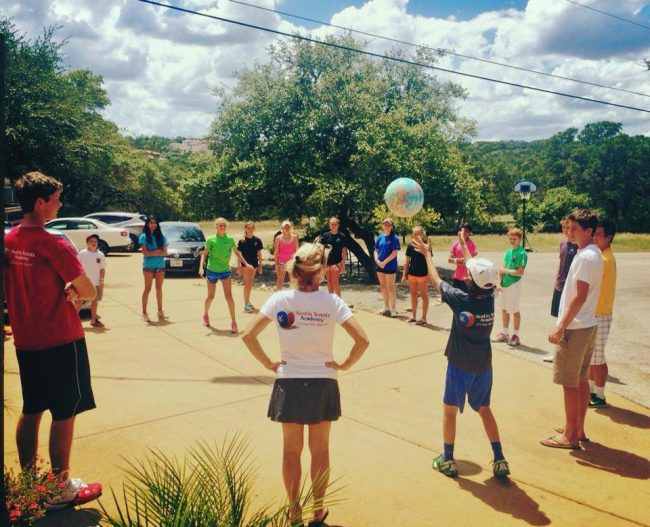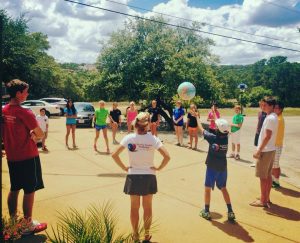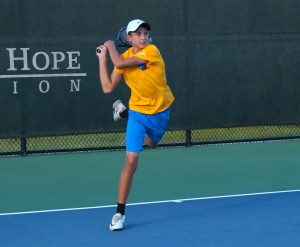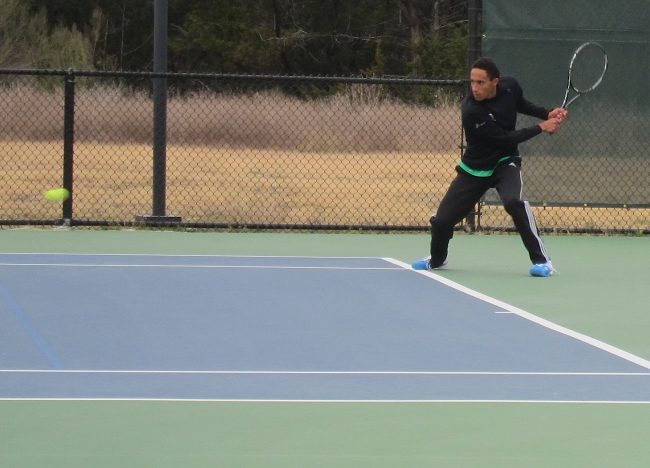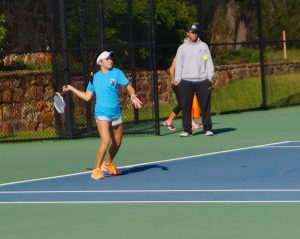Celebrating Passion: The College Prep Class of 2015
Congratulations and Merry Christmas to All!
Your Sport Parent Style Revealed by David Benzel
by David Benzel
Nowhere is our parenting style more evident than when engaged in the world of youth sports. A disturbing example was recently caught on video tape by a neighbor as a young boy was allegedly whipped by his step-father for dropping the ball while playing catch.
While the majority of sport parents will never be guilty of such extreme reactions to a dropped ball, the more subtle versions of this behavior are a regular occurrence in more homes than we’ll ever know. The severity of the judging and rebuking from parents varies widely but the source of the problem is universal: parents often become more analyst than observer, more critic than supporter, and more judge than encourager. As a result children experience a reaction that generally falls into one of four sport parent categories, only one of which is truly desirable. Which one of these is most like you?
The Agent
The Agent-Parent acts as though a child is a commodity to be developed and promoted. This parent tends to over-emphasize the destination (college scholarship or pro contract) more than the journey. Therefore most performances get evaluated and compared to some standard that must be met to stay on track to reach a goal.
The Manager
The Manager-Parent also applies performance pressure in the hopes of making a child better. The main difference is that the Manager focuses on making progress, rather than just the outcome. This parent will manipulate every circumstance (coaches, schedules, equipment) to gain an advantage. Through their constant evaluating and analysis Managers communicate their joy about improvement and their disappointment about sub-par performances.
The Sponsor
The Sponsor-Parent tends not to be involved in a child’s sport experience, but sees it as something to pay for. Hearing about the results of a game afterwards is the norm. While the Sponsor is less guilty of applying performance pressure before competition, they are equally critical after a game and will overlook opportunities to teach the life-lessons exposed through sports.
In each of the three scenarios above, children start to assume that love is given in direct proportion to performance achieved. Only this final sport parent style sends a message of unconditional love and acceptance.
The Hero
The Hero-Parent purposefully avoids adding performance pressure to a child’s athletic world. While this parent is deeply interested in how his child performs, he’s more interested in how he lives and how he feels about himself – win or lose. For that reason more conversations are directed at the bigger life lessons than at sport techniques and strategies. Sport specific conversations consist more of questions and discussion than lecture and directing.
To become a Hero Parent start by asking yourself this question: “What do you want?” Does your child have to become something different for you to be satisfied?
HeroParentJourney2
Every Hero Parent has found the wisdom and the satisfaction of shifting their true desires over to the right-hand box in the illustration above. When a parent’s “want list” consists of things within their own control that only require a change within them, they can go home happy after every game. The results are better family relationships and happier kids who enjoy sports more and stay involved longer.
Law of Giving and Receiving
The universe operates through dynamic exchange – giving and receiving are different aspects of the flow of energy in the universe. Through our willingness to give what we wish to receive, we keep abundance circulating in our lives. Put this to work in your life: 1) Bring a gift to whoever you encounter today – a complement, a prayer, and kind thought, a flower. 2) Gratefully receive all that life has to offer you today. Notice the gifts in nature and in the people and lessons around you. 3) Recognize the most important gifts of caring, affection, appreciation. love. Gift these to everyone you see today.
When you perform anonymous acts of kindness and expect nothing in return, not even a thank you, the Universe responds in kind with the response, “How may I be kind to you?”
During a recent morning meeting, CP students discussed the Law of Giving and Receiving and noted that true giving transcends the barriers of language and distance. We viewed (silently) this inspirational VIDEO and reflected on ways we can commit to give and receive willingly and consciously.
https://www.youtube.com/watch?v=2x_Fl3NQVd4

